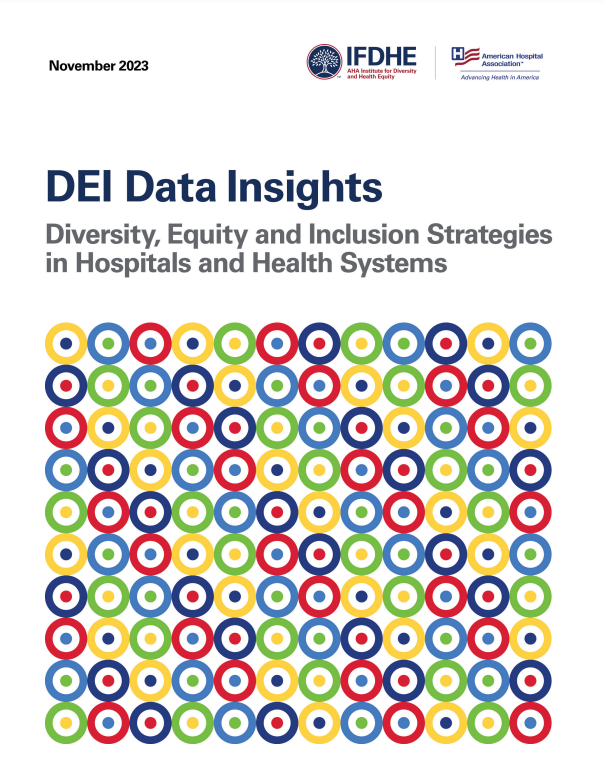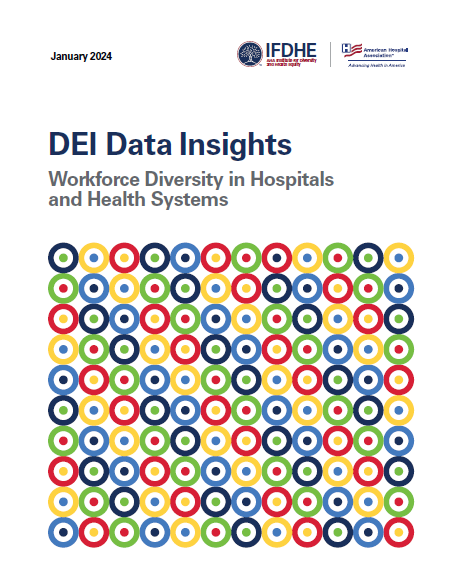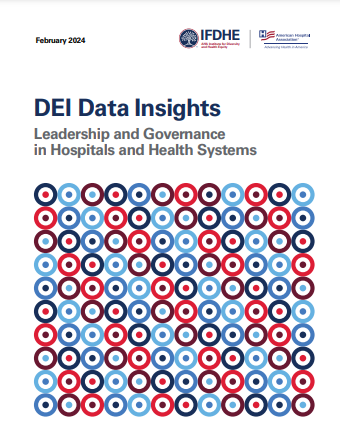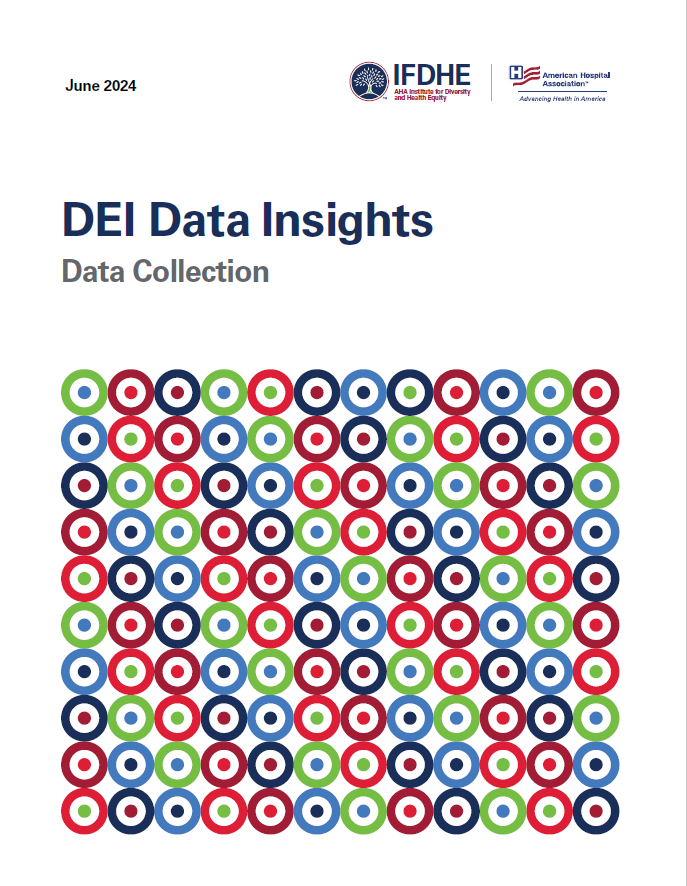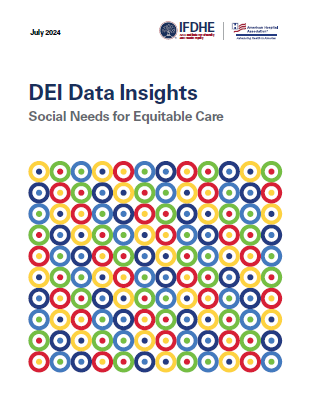DEI Benchmark Survey
As the leading national advocate for hospitals and health systems, the AHA and its Institute for Diversity and Health Equity (IFDHE) support their member organizations’ efforts to improve the health of the communities they serve.
To fulfill this mission, AHA periodically surveys the field’s efforts, successes and challenges in diversity, equity and inclusion (DEI). IFDHE’s biennial DEI Benchmark Survey provides a snapshot of member and non-member hospitals’ attitudes and practices regarding diversity in the workforce; leadership and governance; equity; and inclusive policies and behavior. The survey provides insights into hospitals’ progress and highlights opportunities for improvement.
Data Insights Series
DEI Strategy
Hospitals and health systems across the nation have made strides toward eliminating health disparities and incorporating DEI strategies into their policies and organizational practices to create effective change for the patients and communities they serve. The data highlighted in this document reveal not only the importance of DEI to hospitals and health systems, but also how it is operationalized.
Workforce Diversity
Workforce diversity is a vital component of DEI efforts. Research has shown numerous benefits associated with a diverse workforce, such as higher productivity, retention, employee satisfaction and better clinical outcomes. The survey results highlighted the importance of workforce diversity to health care leaders and revealed strategies hospitals and health systems have implemented to achieve a diverse workforce.
DEI Leadership and Governance
Hospitals and health systems benefit from the insights, expertise and business acumen of community leaders to advance their mission. While not directly responsible for operational deliverables, many boards provide the North Star for DEI progress by providing incentives and accountability structures for CEOs and their executive leadership teams. The survey results highlight several key opportunities for boards to expand their definition of diversity to ensure the inclusion of additional perspectives, which is proven to lead to better decision making.
Data Collection
Collecting data is essential for understanding disparities in health care access, quality, patient safety, and outcomes among different demographic groups. Hospitals and health systems should have a streamlined, standard approach to collecting and analyzing data to identify opportunities for improving the health of their communities.
Social Needs for Equitable Care
Hospitals are uniquely positioned to identify and address societal factors that influence health within their patient population and community. By tailoring their approach and working with community stakeholders, they can make an impact at the personal, community and systemic level. Addressing these societal factors not only enhances patient care and aligns with the missions of many hospitals but also supports strategic objectives such as improving quality and outcomes, reducing costs, advancing equity, and fostering community engagement and trust.

